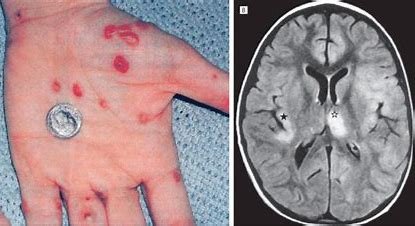EpiVax Poxvirus Vaccine Candidate Predicted to be Effective Against Monkeypox
13 June 2022 | Monday | News

Image Source : Public Domain
The development of this vaccine was funded by the National Institutes of Health (SBIR grant #R43AI058376). The company is looking for a strategic partner with funding and experience in advanced preclinical development and clinical trials to move this "Epitope-Driven Vaccine" into clinical trials. Although the U.S. government has stockpiled two vaccinia virus vaccines for both smallpox and monkeypox, a next generation subunit vaccine may offer a dose-sparing strategy that increases availability of one of the vaccines and avoids safety risks of the other.
Experts in T cell biology, EpiVax scientists have been developing novel T cell epitope vaccines since the company was founded in 1998. This vaccine is named VennVax because it was developed by defining conserved elements between vaccinia (the cowpox virus) and smallpox (the disease that vaccinia vaccine protects against). These conserved elements (T cell epitopes) are also conserved in monkeypox. Initial studies in HLA transgenic mice demonstrated 100% survival rates.
EpiVax has also marked progress this year on a new vaccine for avian influenza that incorporates an immune-engineered H7N9 Hemagglutinin (HA) vaccine antigen, which increased the immunogenicity and efficacy in mouse models. Publication forthcoming in an upcoming 2022 issue of Human Vaccines & Immunotherapeutics. This follows promising results for a Q Fever T cell vaccine candidate published in Frontiers in Immunology in May 2022, in collaboration with Massachusetts General Hospital Scientists.
Dr. Lenny Moise, Director of Vaccine Research at EpiVax had this to say on the potential of T cell vaccine technology: "We are optimistic about the future for vaccines designed to exploit T cell immunity. Our T cell-directed smallpox vaccine shows it's possible to fully protect against disease without inducing an antibody response. And when antibodies are needed, whole antigens can be sculpted to trigger stronger T cell responses for increased vaccine efficacy."
Most Read
- How Does GLP-1 Work?
- Innovations In Magnetic Resonance Imaging Introduced By United Imaging
- Management of Relapsed/Refractory Multiple Myeloma
- 2025 Drug Approvals, Decoded: What Every Biopharma Leader Needs to Know
- BioPharma Manufacturing Resilience: Lessons From Capacity Expansion and Supply Chain Resets from 2025
- APAC Biopharma Review 2025: Innovation, Investment, and Influence on the Global Stage
- Top 25 Biotech Innovations Redefining Health And Planet In 2025
- The New AI Gold Rush: Western Pharma’s Billion-Dollar Bet on Chinese Biotech
- Single-Use Systems Are Rewiring Biopharma Manufacturing
- The State of Biotech and Life Science Jobs in Asia Pacific – 2025
- Asia-Pacific Leads the Charge: Latest Global BioSupplier Technologies of 2025
- Invisible Threats, Visible Risks: How the Nitrosamine Crisis Reshaped Asia’s Pharmaceutical Quality Landscape
Bio Jobs
- Sanofi Turns The Page As Belén Garijo Steps In And Paul Hudson Steps Out
- Global Survey Reveals Nearly 40% of Employees Facing Fertility Challenges Consider Leaving Their Jobs
- BioMed X and AbbVie Begin Global Search for Bold Neuroscience Talent To Decode the Biology of Anhedonia
- Thermo Fisher Expands Bengaluru R&D Centre to Advance Antibody Innovation and Strengthen India’s Life Sciences Ecosystem
- Accord Plasma (Intas Group) Acquires Prothya Biosolutions to Expand Global Plasma Capabilities
- ACG Announces $200 Million Investment to Establish First U.S. Capsule Manufacturing Facility in Atlanta
- AstraZeneca Invests $4.5 Billion to Build Advanced Manufacturing Facility in Virginia, Expanding U.S. Medicine Production
News











